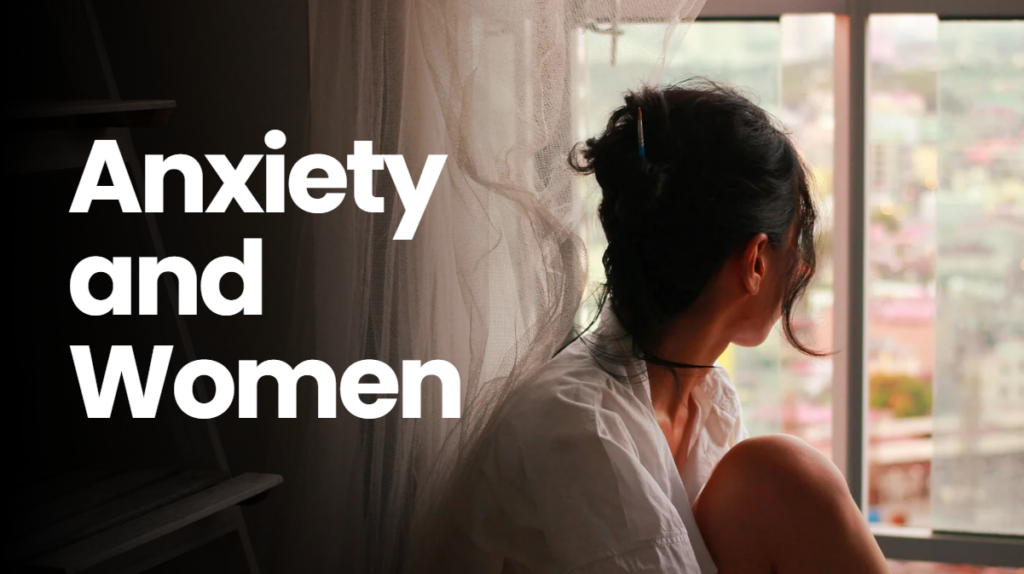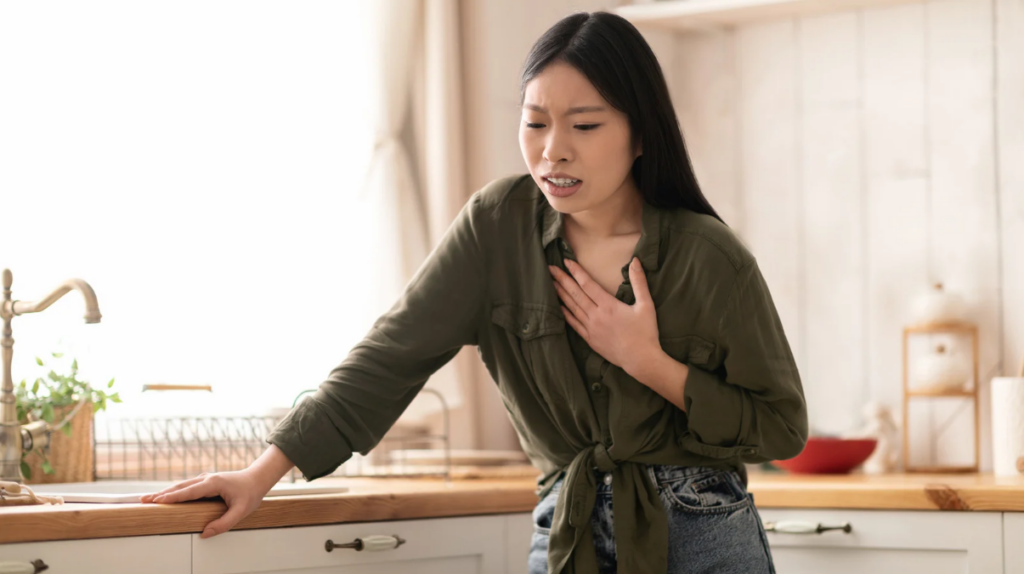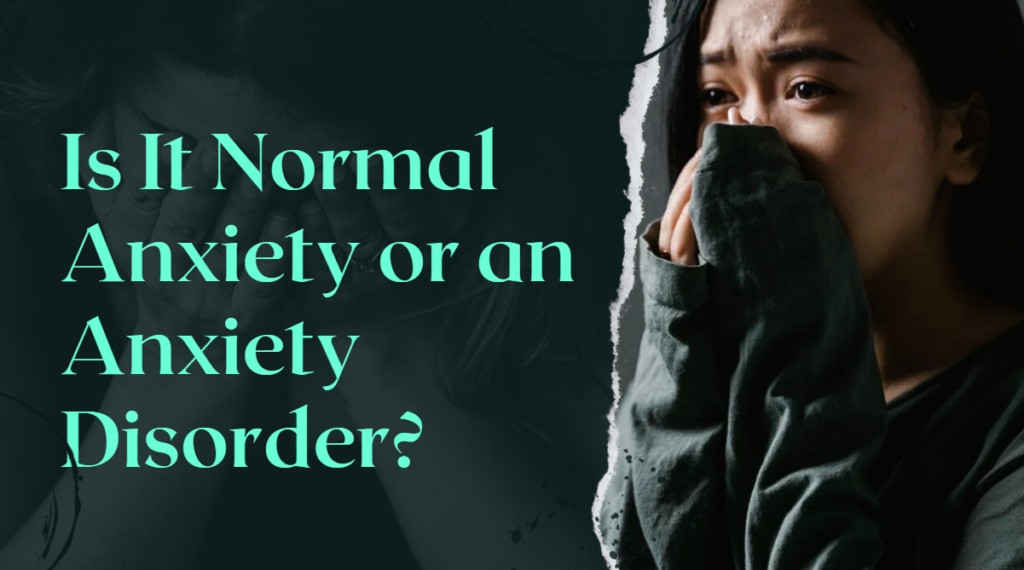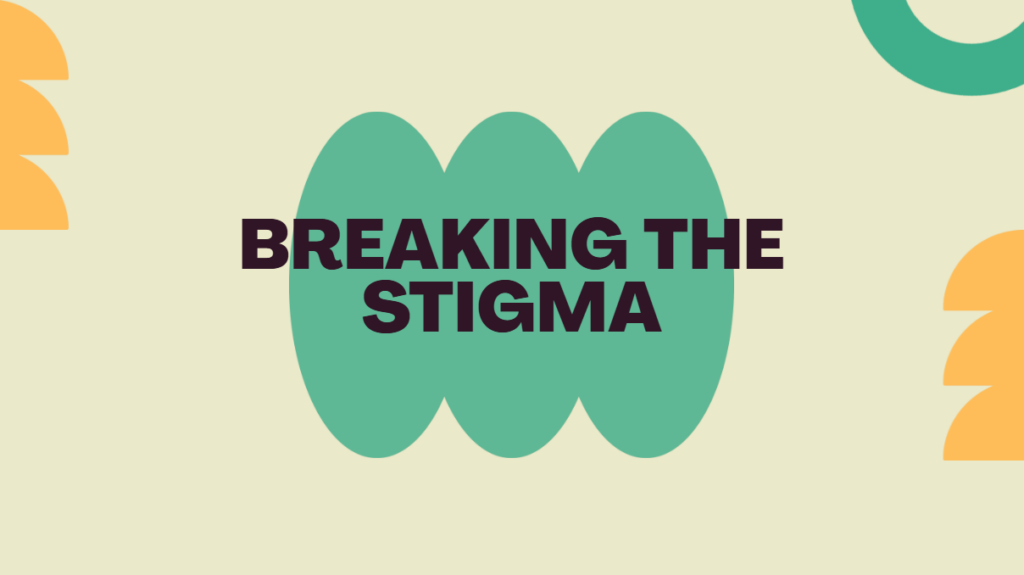
Anxiety is not just “worrying too much”—it’s a real health condition that affects millions of women every day. From sleepless nights and racing thoughts to physical symptoms like chest tightness and dizziness, anxiety can quietly take over life if left unaddressed.
The truth? Women are almost twice as likely as men to develop anxiety disorders. But with awareness, support, and the right treatment, relief and healing are possible. This guide explores everything you need to know about anxiety in women—what it feels like, why it happens, and how to get help that actually works.
Anxiety and Women
Anxiety is the body and mind’s natural response to stress or perceived danger. A little anxiety can be normal—like before a presentation or a big life event. But when worry becomes persistent, overwhelming, and disruptive, it can signal an anxiety disorder.
Why does anxiety affect women more?
- Biological differences: Hormonal fluctuations tied to estrogen and progesterone can make women more vulnerable to mood and anxiety changes.
- Life stages: Puberty, pregnancy, postpartum, and menopause all bring shifts that can intensify anxiety.
- Social pressures: Caregiving roles, career expectations, body image concerns, and exposure to gender-based violence weigh heavily on women’s mental health.
Understanding these layers helps women see that anxiety isn’t a personal weakness—it’s influenced by real physical, psychological, and environmental factors.
How to Find Out If You Have Anxiety
Many women wonder: Is what I’m feeling anxiety—or just stress?
Signs you may have anxiety include:
- Constant worry that’s hard to control
- Restlessness or feeling “on edge”
- Trouble sleeping or relaxing
- Physical symptoms like tension, nausea, or rapid heartbeat
- Avoiding situations out of fear
Doctors often use simple screening tools like the GAD-7 (Generalized Anxiety Disorder questionnaire) or PHQ-4 to measure severity.
Self-reflection questions to ask yourself:
- Do my worries feel out of proportion to the situation?
- Is anxiety interfering with my work, relationships, or daily life?
- Do I avoid things I actually want to do because of fear?
If you answered “yes” to several, it’s worth talking to a primary care provider or mental health professional.
Anxiety Attack in Women Symptoms

Anxiety attacks, often called panic attacks, can feel terrifying—many women mistake them for heart attacks.
Common anxiety attack symptoms in women include:
- Rapid or pounding heartbeat
- Shortness of breath or chest pain
- Sweating, trembling, or chills
- Dizziness or feeling faint
- Nausea or stomach upset
- A sense of losing control or impending doom
Women may report stronger somatic symptoms (like chest pain or dizziness) compared to men, which is why anxiety in women sometimes goes misdiagnosed as purely physical illness.
Recognizing these symptoms can prevent unnecessary ER visits and lead to the right mental health care.
Root Causes and Triggers of Anxiety in Women
Anxiety rarely has one single cause. For women, it often arises from a mix of biology, psychology, and life stressors.
Biological contributors:
- Hormonal fluctuations (menstrual cycle, pregnancy, menopause)
- Thyroid issues or other medical conditions
- Neurochemical imbalances in serotonin and GABA
Psychological factors:
- Perfectionism and people-pleasing tendencies
- Childhood trauma or past abuse
- Negative self-talk and self-criticism
Environmental and social triggers:
- Caregiving stress (raising children, supporting aging parents)
- Workplace discrimination or unequal pay
- Financial stress and job insecurity
- Relationship pressures
Lifestyle factors:
- Lack of quality sleep
- Excess caffeine or alcohol
- Poor nutrition and sedentary lifestyle
By identifying triggers, women can take proactive steps toward prevention and healing.
How Do You Know If It’s Normal Anxiety or an Anxiety Disorder?

Occasional anxiety is a normal part of life—like feeling nervous before a job interview. But clinical anxiety is different. The distinction lies in how often it shows up, how long it lasts, and how much it affects your daily life.
Normal Anxiety
- Tied to specific events: This type of anxiety usually shows up around a clear stressor, like an exam or a work deadline. Once the event passes, the worry eases naturally.
- Temporary and fades once the stressor passes: Normal anxiety is short-lived and doesn’t linger for weeks or months. It tends to resolve as soon as the challenge or threat is over.
- Doesn’t disrupt daily life: Everyday anxiety doesn’t stop you from doing your job, maintaining relationships, or engaging in activities you enjoy. It may be uncomfortable, but it isn’t debilitating.
Anxiety Disorder
- Persistent and disproportionate to the situation: Anxiety continues even when there’s no obvious reason to feel worried. The intensity often feels much greater than what the situation calls for.
- Lasts for months or more: Unlike normal stress, anxiety disorders linger and become a recurring pattern. Symptoms may stretch on for six months or longer without improvement.
- Interferes with work, relationships, or health: Daily responsibilities start to feel impossible, and anxiety may cause problems at work, in school, or within personal relationships.
- Triggers physical symptoms even without clear cause: Women may notice racing heartbeats, shortness of breath, or stomach distress even when they can’t identify what triggered it. These symptoms are signs that anxiety has moved beyond “normal.”
Types of Anxiety Disorders That Commonly Affect Women
Not all anxiety looks the same. Common types in women include:
- Generalized Anxiety Disorder (GAD): Ongoing, excessive worry about everyday issues.
- Panic Disorder: Sudden, repeated panic attacks with intense physical symptoms.
- Social Anxiety Disorder: Fear of judgment or embarrassment in social situations.
- Postpartum Anxiety: Worry, restlessness, or panic after giving birth.
- Specific Phobias: Extreme fear of particular things (flying, heights, needles).
- Obsessive-Compulsive Disorder (OCD): Intrusive thoughts and compulsive behaviors.
- Post-Traumatic Stress Disorder (PTSD): Anxiety triggered by past trauma, often more common in women due to higher exposure to violence and abuse.
Understanding the type helps tailor treatment to what works best.
Diagnosis: The Role of Primary Care and Psychiatry

For many women, the first step in getting help for anxiety begins in the primary care provider’s (PCP) office. Since anxiety symptoms often overlap with physical health issues—like chest tightness, heart palpitations, or fatigue—PCPs play a vital role in sorting out what’s going on.
How primary care helps in the diagnostic process:
- Ruling out physical conditions: Anxiety symptoms can mimic thyroid problems, heart conditions, vitamin deficiencies, or even side effects of medications. A PCP makes sure underlying medical causes aren’t overlooked.
- Ordering lab work or exams: Blood tests, thyroid panels, or heart monitoring may be recommended to rule out health concerns that can trigger or worsen anxiety.
- Providing initial screening tools: Many PCPs use brief questionnaires such as the GAD-7 (Generalized Anxiety Disorder scale) to measure anxiety severity.
- Referring to specialists when needed: If symptoms point toward a mental health disorder, a PCP will often connect you to a psychiatrist, psychologist, or therapist for further evaluation and care.
Psychiatrists and psychologists then step in with a deeper evaluation.
- Psychiatrists can diagnose anxiety disorders, prescribe medications, and coordinate care with other health providers.
- Psychologists and therapists typically focus on talk therapy, cognitive-behavioral techniques, and skill-building to help women manage anxiety without relying solely on medication.
In many cases, the best outcomes happen through a team approach:
- A PCP ensures physical health conditions are addressed.
- A psychiatrist manages medications if needed.
- A therapist provides tools and coping strategies for daily life.
This integrated style of care recognizes that anxiety is not just a “mental” problem but often a whole-body experience. Women benefit most when primary care, psychiatry, and counseling work hand in hand, offering comprehensive and compassionate support.
Treatment Options That Work for Women
The good news: anxiety is highly treatable.
Therapy approaches:
- Cognitive Behavioral Therapy (CBT): Restructures anxious thought patterns.
- Dialectical Behavior Therapy (DBT): Helps regulate emotions and build coping skills.
- Exposure therapy: Gradual exposure to fears to reduce avoidance.
- Trauma-informed therapy: Essential for women with abuse histories.
Medication options:
- SSRIs (Selective Serotonin Reuptake Inhibitors): First-line treatment for anxiety.
- SNRIs (Serotonin-Norepinephrine Reuptake Inhibitors).
- Benzodiazepines: Short-term relief, used with caution.
- Considerations for pregnancy, breastfeeding, and menopause.
Lifestyle & holistic options:
- Regular exercise and movement
- Mindfulness, meditation, and yoga
- Balanced diet with reduced caffeine/alcohol
- Acupuncture or massage therapy
Treatment must be individualized—what works for one woman may not work for another.
Coping Skills and Self-Help for Daily Relief

While professional care is vital, self-help strategies can provide daily relief.
Practical coping skills:
- Deep breathing & grounding techniques: Calm the nervous system during panic.
- Journaling: Helps process intrusive thoughts and emotions.
- Boundaries: Saying no to protect mental energy.
- Digital detox: Reduce overstimulation from constant notifications.
Healthy habits:
- Consistent sleep schedule
- Nutritious meals that stabilize blood sugar
- Regular outdoor activity and sunlight exposure
Social support:
- Women’s support groups or online forums
- Talking openly with trusted friends or family
These small steps create a foundation for long-term resilience.
When Anxiety Overlaps With Other Conditions
Anxiety rarely exists in isolation. Many women experience:
- Depression + Anxiety: A common dual diagnosis.
- ADHD in women: Often masked, leading to anxiety from constant overwhelm.
- Chronic illness: Autoimmune conditions, migraines, or chronic pain worsen anxiety.
- Eating disorders: Body image pressures fuel cycles of anxiety.
Integrated care that addresses both mental and physical health is key for healing.
When to Seek Immediate Help
Sometimes anxiety escalates into a crisis. Seek urgent help if you experience:
- Thoughts of harming yourself or others
- Panic attacks that impair breathing or functioning
- Inability to perform daily activities like eating, working, or caring for family
Resources for immediate help:
- Call your doctor or psychiatrist
- Go to the nearest emergency room if symptoms feel life-threatening
- National Suicide Prevention Lifeline (988 in the U.S.)
It’s always better to reach out sooner than later—early intervention saves lives.
Breaking the Stigma: Talking About Anxiety as a Woman

Women often hide their anxiety out of fear of being labeled “too emotional” or “weak.” But silence fuels stigma.
Why breaking the stigma matters:
- Normalizes anxiety as a health issue, not a character flaw
- Encourages women to seek treatment without shame
- Builds supportive communities where women uplift one another
By sharing stories and advocating for mental health, women reclaim power and pave the way for others to seek healing.
Final Thoughts: Hope and Healing Are Possible
Anxiety may feel overwhelming, but it does not define you. With the right support—from primary care providers, mental health professionals, and self-care practices—women can find real relief and long-term healing. Anxiety is treatable, and recovery is possible. Every woman deserves to live without constant worry, fear, or tension stealing her peace of mind.
If you’re ready to take the next step toward healing, EmpowHer Psychiatry and Wellness, located in Union, NJ, is here to help. Our trusted team specializes in compassionate, comprehensive mental health care designed specifically for women. We provide accurate diagnoses, personalized treatment plans, and ongoing support to ensure you feel truly seen and understood. Whether you’re struggling with daily anxiety, panic attacks, or overlapping conditions, we are committed to walking with you every step of the way.
📞 Call us today at 908-315-9885 to schedule an appointment. At EmpowHer Psychiatry and Wellness, we believe that healing starts with being heard—and we’re here to empower you with the tools, care, and guidance you need to reclaim your life.

